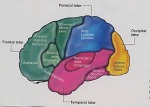 So brain training doesn’t actually make you smarter. Some of you may have seen the experiment on a BBC Science Programme http://www.bbc.co.uk/labuk/results/braintestbritain/6_training_results.html or read about it the newspapers eg http://www.telegraph.co.uk/health/healthnews/7610884/Popular-brain-training-games-do-not-make-users-any-smarter.html and http://www.timesonline.co.uk/tol/life_and_style/health/article7103288.ece
So brain training doesn’t actually make you smarter. Some of you may have seen the experiment on a BBC Science Programme http://www.bbc.co.uk/labuk/results/braintestbritain/6_training_results.html or read about it the newspapers eg http://www.telegraph.co.uk/health/healthnews/7610884/Popular-brain-training-games-do-not-make-users-any-smarter.html and http://www.timesonline.co.uk/tol/life_and_style/health/article7103288.ece
Basically the Cambridge University study showed that practising on brain training games didn’t improve your cognitive function but only made you better at that game and that it is just as effective to spend the same amount of time surfing the internet. Nintendo, which has sold 35 million games like these, was quick to point out that they never made any claims that such games could improve cognitive function.
In the early part of the same BBC programme there was a case study of a man who, in his childhood, had half his brain effectively disconnected. His brain managed to compensate by transferring functions to the other half of the brain, a good example of the brain’s plasticity. Although an extreme example it shows that the brain is capable of developing new connections every day of our lives and every time we do something new.
So is it a waste of time practising? In Malcolm Gladwell’s book “Outliers” he quotes neurologist Daniel Levitin’s research which suggests that to achieve true expertise or mastery in anything, whether to be a musician or a master criminal, you have to practise for 10,000 hours. That’s 3 hours a day, every day, for 10 years! He also believes that cultural demands can make a difference and says Asians’ excellence in mathematics is because their culture expects and even demands it. http://entertainment.timesonline.co.uk/tol/arts_and_entertainment/books/article4969415.ece
Similarly David Schenk, a writer on genetics, claims that the case for genetic predisposition is overstated and that if you practise hard enough you can even become a genius. He challenges the belief that Kenyan marathon runners have a genetic advantage and says that it is cultural with children running 8-10 kilometres a day from the age of 7. He also believes that rather than being a static blueprint DNA is open to influence by external factors and that genes can be turned on or off by environmental influences which we then pass on to our children. So David Beckham’s prowess at free kicks isn’t down to genes so much as practice and more practice. http://www.timesonline.co.uk/tol/life_and_style/health/article7069310.ece
Dr Yannis Pitsiladis at the University of Glasgow has concluded after 10 years studying elite athletes – including African distance runners and Jamaican sprinters – that their success is not due to their DNA as he first thought but is: “a socio-economic phenomenon” (Sports Illustrated).
There was one positive finding from the Cambridge study in that brain training games may be useful for elderly people suffering from Alzheimer’s disease. But I think I’ll stick to learning a language and doing my Su Doku.
“There is no golden genetic windfall bestowed at birth, but constant interaction between the outside world and our DNA” says David Schenk in The Observer (2 May 2010). Promoting his book, “The genius in all of us”, he accepts that there might be genes that influence our drive and motivation but believes that they are not totally innate. and that resilience, and motivation, can appear at different stages in people’s lives.
He thinks this trait often appears in response to adversity, that some people will find it more difficult to develop intense drive than others, but that is basically a developed trait. He concludes; “Few of us know our true limits and the vast majority of us have not come close to tapping our unactualised potential”.
http://www.guardian.co.uk/theobserver/2010/may/02/david-shenk-genius-genetics
Updated 13 January 2011: http://www.bbc.co.uk/news/magazine-12140064
This is another story about genetic influences and in particular the idea that we can no longer refer to innate talent – everything is a product of our genes and our interaction with the environment. Amongst interesting research results Carol Dweck, from Stanford University in the US, has demonstrated that students who understand intelligence is malleable rather than fixed are much more intellectually ambitious and successful.
Updated 19 April 2011: http://www.bbc.co.uk/news/magazine-13128701
Another article about Carol Dweck’s research. Students who are praised for working hard rather than being smart do better!

You must be logged in to post a comment.